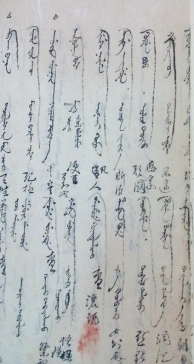This project focused on the Manchu language, particularly its script, and its study from the seventeenth to the nineteenth century. Manchu was nothing like Chinese, but it was used in the Qing empire as the language of the ruling house and parts of the hereditary military elite until the early twentieth century. The project considered how Manchu was developed as a written language by the early Qing rulers and subsequently taught, used, and theorized by individuals both in and outside the empire.
I presented a first overview of the project in my dissertation, "Manchu and the Study of Language in China (1607–1911)," defended at Princeton University in 2015. During my time at the MPIWG, in addition to publishing several articles, I worked on writing a book that took the research in a new direction. The book argues that Manchu, which thus far has primarily been studied within the context of the expanding Qing empire’s imperial and military institutions, is also a topic for cultural and intellectual history both inside and outside China. At both ends of Eurasia, the study of Manchu was not just contemporaneous, it was connected. In the writing of textbooks, compilation of dictionaries, and printing, Manchu emerges as intimately related to the globalization of the early modern world.
The book and the project are now finished. As of January 2019, the book is forthcoming from the University of Pennsylvania Press.

